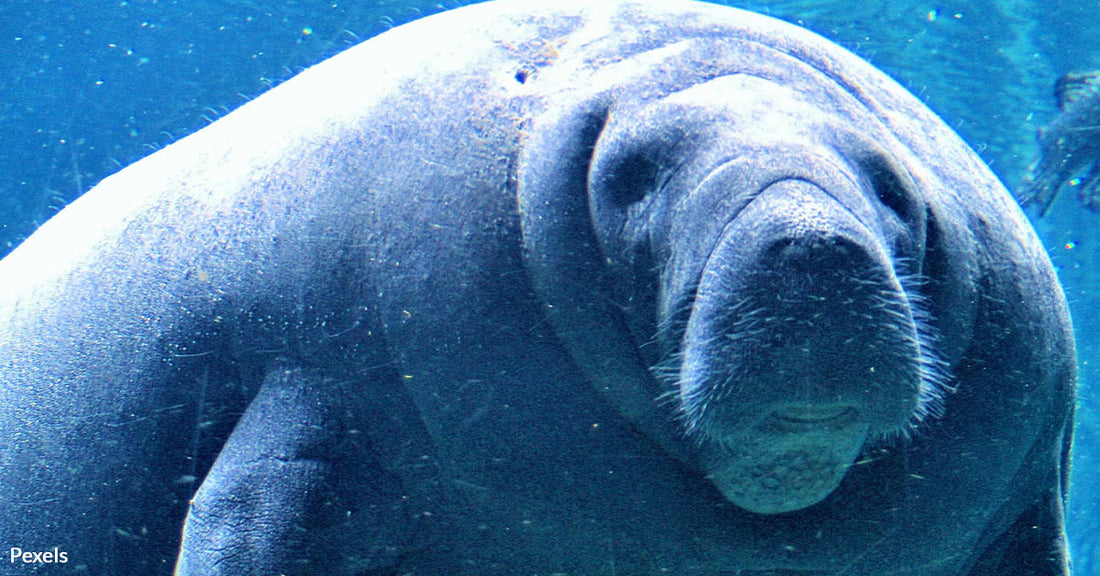Starving Manatees Push Wildlife Advocates to Sue Federal Agency
Matthew Russell
The manatee, a gentle giant of the marine world, faces a precarious future. These aquatic mammals, known for their peaceful demeanor and slow movements, find themselves at the heart of a growing environmental crisis.
Delays in their reclassification as an endangered species have sparked a significant legal and conservationist outcry.
 Photo: Pexels
Photo: PexelsManatees risk extinction due to severe habitat threats.
Legal Battles and Bureaucratic Delays
A coalition of environmental organizations and advocates has taken a stand against the sluggish pace at which the U.S. Fish and Wildlife Service (FWS) has approached the reclassification of manatees from threatened to endangered.
The Center for Biological Diversity, along with other groups, filed a notice preparing to sue the FWS over its failure to meet the statutory deadline for determining the manatee's endangered status.
This action comes in the wake of record manatee mortalities in Florida, with 1,100 deaths in 2021 alone, CBS News reports.
The primary cause of this uptick in deaths has been identified as starvation due to the significant loss of seagrass in key habitats like the Indian River Lagoon, according to Orlando Weekly.
 Photo: Pexels
Photo: PexelsLegal action looms over delays in manatee protection upgrades.
Seagrass Depletion: A Growing Threat
The diminishing seagrass beds, a vital food source for the manatee, have become a focal point of concern. As MMC reports, algal blooms, fueled by pollution and environmental degradation, have decimated these underwater meadows, leaving manatees with insufficient food supplies.
According to NBC, the situation has become dire enough that wildlife officials have resorted to feeding manatees lettuce in an attempt to mitigate the starvation risk.
 Photo: Pexels
Photo: PexelsStarvation from seagrass loss becomes a deadly reality for manatees.
Human Impact: A Dual-Edged Sword
Beyond the natural threats to their habitat, manatees also face dangers from human activities. Boat strikes have long been a leading cause of manatee injuries and fatalities. Additionally, as CBS News reports, the potential closure of power plants, which provide essential warm water refuges for manatees during colder months, poses another significant threat to their survival.
 Photo: Pexels
Photo: PexelsBoat strikes contribute significantly to manatee mortality rates.
Conservation Efforts and Future Directions
In response to the crisis, environmental organizations and federal agencies have initiated several conservation measures. Supplemental feeding programs and efforts to restore natural warm-water habitats and seagrass beds are underway, MMC reports. Yet, these interventions can only offer temporary relief. The long-term survival of the manatee hinges on more robust environmental protections and a concerted effort to address the root causes of their habitat's degradation.
 Photo: Pexels
Photo: PexelsSeagrass restoration efforts underway to combat manatee starvation.
A Call to Action
The manatee's plight serves as a poignant reminder of the delicate balance within our ecosystems and the far-reaching impacts of human activity. The bureaucratic delays in reclassifying the manatee as an endangered species not only undermine the immediate well-being of these majestic creatures but also reflect a broader systemic failure to prioritize and address environmental challenges.
As legal battles unfold and conservationists rally for change, the fate of the manatee hangs in the balance, symbolizing the broader struggle for environmental preservation and the urgent need for collective action.
Click below and help us take action for this species!

